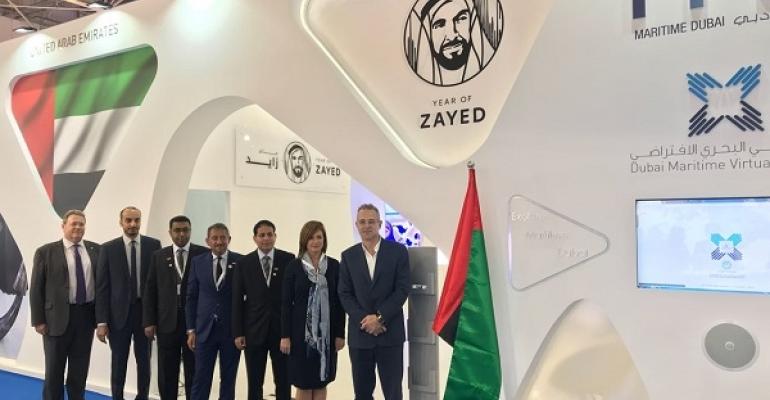For the UAE’s Federal Transport Authority (FTA), being ranked among the world’s leading maritime nations is a major achievement for the young country and cements its position as the region’s most developed maritime hub.
“It is a huge source of pride not only for UAE, but for all Arab nations,” says Abdullah Belhaif al-Nuaimi, UAE Minister of Infrastructure Development and chairman of the FTA – Land and Maritime. “The Council is the executive organ of the IMO…and is responsible for supervising the work of the organisation, scrutinising [its] work programme and budget, coordinating activities, presenting reports and proposals to the assembly.
“It creates further responsibilities,” he adds, “but we are committed to playing a significant role in shaping the future of the global maritime system and efficiently contributing to the work of the IMO to achieve its mission for safe, secure and efficient shipping on clean oceans.”
In gaining this seat at the top table, the UAE will now participate directly in decision-making at the IMO and help to formulate future regulations governing the global maritime industry, says Al-Nuaimi. Stakeholders in the UAE maritime sector will in turn benefit from attending IMO meetings, gaining from the rich seam of knowledge and high-level dialogue.
Ultimately, Al-Nuaimi expects it will enhance the reputation of the UAE maritime industry, paving the way for more investment in the sector.
The maritime industry currently accounts for about 5% of the UAE’s GDP, but the FTA believes this could be increased to 25%. To encourage investment in the sector, the UAE is preparing a new Maritime Law, and the transport authority is currently revising the first draft.
The updated legislation will include provisions to encourage investment in shipping and provide incentives for ship registration under the UAE flag.
The business environment as a whole has been undergoing significant change in the UAE this year. At the start of 2018, as part of a wider regional initiative, the federal government introduced value-added tax for the first time, set at a rate of 5%. There have been calls from within the shipping industry to seek an exemption from VAT, but Al-Nuaimi points out that other recent regulatory changes have improved the attractiveness of the UAE as an investment destination.
Learn more about regulation at Seatrade Maritime Middle East from October 29-31, 2018.
“We think that there are several incentives to attract and promote investment in the shipping industry other than exemption from VAT,” the minister says. “In a major announcement [in May], the UAE cabinet approved 100% foreign ownership of companies, which was previously limited to [those] based in freezones. In addition, the cabinet approved a new long-term visa system aimed at attracting international investors and high-skilled professional workers.
“These major incentives are going to draw foreign direct investment as well as top talent into the UAE [helping it] to remain the most attractive and investment friendly destination in the region. It is also expected that the new measures will help raise the UAE’s global profile as a preferred investment destination, positively impacting the local business environment and ultimately enhancing the country’s economic competitiveness.”
Copyright © 2024. All rights reserved. Seatrade, a trading name of Informa Markets (UK) Limited. Add Seatrade Maritime News to your Google News feed.


